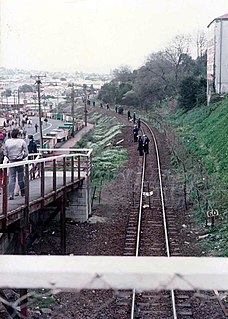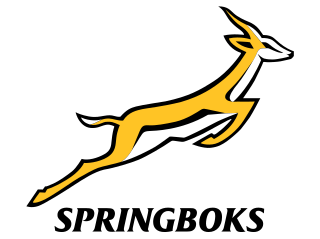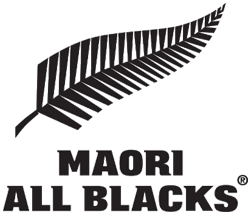
The New Zealand men's national rugby union team, commonly known as the All Blacks, represents New Zealand in men's international rugby union, which is considered the country's national sport. The team won the Rugby World Cup in 1987, 2011 and 2015.

The 1981 South African rugby tour polarised opinions and inspired widespread protests across New Zealand. The controversy also extended to the United States, where the South African rugby team continued their tour after departing New Zealand.

The South Africa national rugby union team, commonly known as the Springboks, is the country's national team governed by the South African Rugby Union. The Springboks play in green and gold jerseys with white shorts, and their emblem is the native antelope springbok. The team has been representing South Africa in international rugby union since 30 July 1891, when they played their first test match against a British Isles touring team.
{{Sport overview | country = New Zealand | sport = rugby union | image = All Blacks England.jpg | imagesize = 200px | caption = [[New Zealand national rugby union team|New Zealand playing England. | union = New Zealand Rugby Union | nickname = All Blacks | first = 1870, Nelson | registered = 146,893 (total)
28,648 (adults) | clubs = 600 | intl_list =

The Māori All Blacks, previously called the New Zealand Māori, New Zealand Maoris and New Zealand Natives, are a rugby union team from New Zealand. They are a representative team of the New Zealand Rugby Union, and a prerequisite for playing is that the player has Māori whakapapa (genealogy). In the past this rule was not strictly applied; non–Māori players who looked Māori were often selected in the team. These included a few Pacific island players and a couple of African descent. Today all players have their ancestry verified before selection in the team.

John Minto is a New Zealand-based political activist known for his involvement in various left-wing groups and causes, most notably Halt All Racist Tours. A 2005 documentary on New Zealand's Top 100 History Makers listed him as number 89. Today he is involved with the protest group Global Peace and Justice Auckland and the Unite Union. He also wrote a weekly column for The Press and was formerly editor of the Workers' Charter newspaper.
The Cavaliers was the name given to an unofficial New Zealand rugby union team which toured South Africa in 1986, playing the Springbok rugby team.
1949 saw the second full tour of South Africa by a representative New Zealand rugby union team. The All Blacks achieved a record of 13 wins, 7 losses and 4 draws, and they lost the test series 4–0.
Colin "Col" Windon, was a rugby union player and soldier who captained Australia – the Wallabies – in two Test matches in 1951. By age 18 Windon was playing at flanker for his club Randwick in Sydney's Shute Shield. After serving with the Second Australian Imperial Force in the Pacific Theatre during the Second World War, Windon resumed his rugby career in 1946. He was first selected for Australia for their tour of New Zealand that year. Despite the Wallabies losing both their Tests on tour, Windon impressed with his play.

Kenneth Francis Gray was an international rugby union player from New Zealand. He represented New Zealand in 24 international games, playing lock and later prop forward.
South Africa under apartheid was subjected to a variety of international boycotts, including on sporting contacts. There was some debate about whether the aim of the boycott was to end segregation in sport, or to end apartheid together.
Sydney Nomis was a South African national rugby union player who until 2001 held the record for most consecutive matches (25) played for the Springboks. Nomis is best remembered for tries that he scored against France in 1968 and the All Blacks in 1970.

John Burns Smith was a New Zealand rugby union player, soldier, sportsman and baker. He was an All Black captain, and despite only playing nine matches is recognised as a great. His 26 appearances for the Second New Zealand Expeditionary Force rugby team, which toured the UK in 1946–47, earned him high praise. He also played for the New Zealand Māori, being of Ngāpuhi descent.
Rugby union is the national sport of New Zealand with the All Blacks as the national team. The All Blacks are made up of many races and cultures, and seven of the fifteen starters in the 2011 Rugby World Cup Final were of Polynesian descent. However, although the national team has a long history of success, it also has on occasion been the subject of racial issues. On the international stage there has been controversy in the tours of and by South Africa, the most famous of which was the 1981 tour of South Africa. These tours drew much international criticism as many states were boycotting South Africa due to apartheid. On the domestic stage there have been issues of racism in the Super Rugby competition. There have also been some instances of racism in college rugby and club rugby. Racism is quite a serious human rights issue in New Zealand, which was highlighted in the Universal Periodic Review by the United Nations Human Rights Council.
The 1960 New Zealand rugby union tour of South Africa, was a series of rugby union match played by New Zealand national rugby union team in South Africa and Rhodesia.
Rugby union and apartheid had a complex and supportive relationship. From 1948 to 1994, international rugby relations with the country, and also the non-integrated nature of rugby within South Africa drew frequent controversy. South Africa remained a member of the International Rugby Board (IRB) throughout the apartheid era.

Rugby union has a long history in New Zealand. Today, New Zealand holds tier one status with World Rugby.
The History of the South Africa national rugby union team dates back to 1891, when the British Lions first toured South Africa where they played against South African representative sides. The South Africa national rugby union team played few international matches during a period of international sanctions due to apartheid. Since the end of apartheid in 1990–91, South Africa has once again fully participated in international rugby.

Finnigan v New Zealand Rugby Football Union, was a case taken by a member of the Auckland University Rugby Football Club and a member of the Teachers Rugby Football Club against the decision of the New Zealand Rugby Football Union (NZRFU) Council to accept an invitation for the All Blacks to tour South Africa. The invitation came just four years after the 1981 South Africa rugby union tour of New Zealand had divided the New Zealand public over the All Blacks refusal to participate in the sporting boycott of South Africa during the Apartheid era. The decision primarily concerned whether the two plaintiffs had sufficient standing to challenge the NZRFU decision. The decision marked the adoption of the principles of R v Inland Revenue Commissioners ex p National Federation of Self-Employed and Small Businesses [1982] AC 617 approach to standing in judicial review into New Zealand law.

In 1992, South Africa played a rugby union test match against New Zealand, which later became known as the Return Test. It was a rugby union test match between the South African national rugby union team and New Zealand national rugby union team at Ellis Park Stadium in Johannesburg on 15 August 1992. It was named as the Return Test as it was South Africa's first test match since the International Rugby Board (IRB) had banned them due to apartheid.










